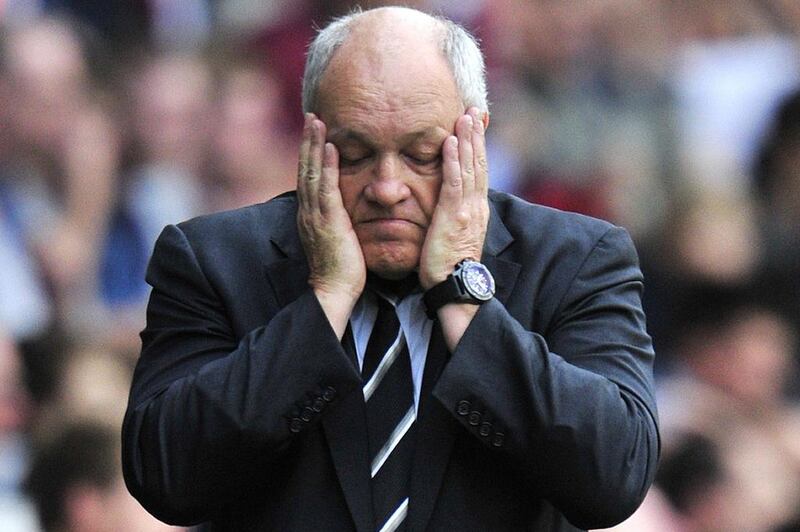There was a strange moment after Fulham had beaten Stoke City in October, one of those instances when the facade falls away and you seem to glimpse something of what goes on beneath.
Martin Jol had been asked about the pressure of managing a club near the bottom of the table and he replied, in his characteristic growl, that it didn’t really bother him as he didn’t expect to be in the job “for years”.
A frisson passed through the press-room. Was he really saying, as he appeared to be, that he didn’t really care because he didn’t see a long-term future at Fulham? Given the change in ownership in the summer and the tendency for new owners to appoint their own people, nobody else in the room expected him to last much longer either, but managers aren’t supposed to be so open.
Maybe Jol was, though: after all, few seem to enjoy playing up to their image quite so much, few seem quite so aware of the absurdity of the Premier League soap opera.
Jol looks like Tony Soprano so he acted like Tony Soprano: he offered to fight fans – jokingly, probably – and often seemed keener to discuss cheerleaders than football. His gloomy huskiness was – surely – at least in part put on.
It has been said that he had had an air of resignation in recent weeks but the truth is he has always had an air of resignation; he probably came out of the womb with jaw set and eyes narrowed, glowering dyspeptically at the midwife.
But had he meant it? He backtracked slightly and it was generally assumed that what he had meant was that he would not be a football manager for ever, rather than that he expected the sack.
Maybe he did, but as the weeks have gone by and Fulham have drifted closer and closer to the bottom of the table, there has been no sense that Jol had the fight to turn things around. All three wins this season have been fortuitous: a one-shot one-goal win at Sunderland on the opening day, a 1-0 win over a Stoke City side who had far more chances and then a 4-1 victory at Crystal Palace set up by two preposterous volleys.
With Dimitar Berbatov, Adel Taraabt, Derek Boateng and Bryan Ruiz, Jol had compiled a moody but gifted squad; add in the wild staring eyes and manic energy of Giorgos Karagounis, the inconsistent skills of Alex Kacaniklic and the side-parted reserve of Scott Parker and you have a great cast for an Ocean’s Eleven-style ensemble heist movie. Given time, perhaps there would have been three or four indelibly brilliant performances, full of languid football and meaningful glances, but as it was there was only drabness and the growing certainty of relegation.
Shahid Khan, the club’s new owner, spoke of Jol’s graciousness in accepting the decision, which is hardly a surprise given he had seemingly been expecting it for weeks. The question really is why Rene Meulensteen, now the new manager, was appointed to work alongside Jol on November 13; why not simply appoint him to the top job then? If there really was supposed to be a partnership, 17 days is no time to judge it.
So Jol strolls away and Meulensteen, presumably knowing money will be made available in January, talks of the need to invest. The idea of brooding genius flicking intermittently by the River Thames was a beguiling one, but modern football has no place for such bohemianism.





